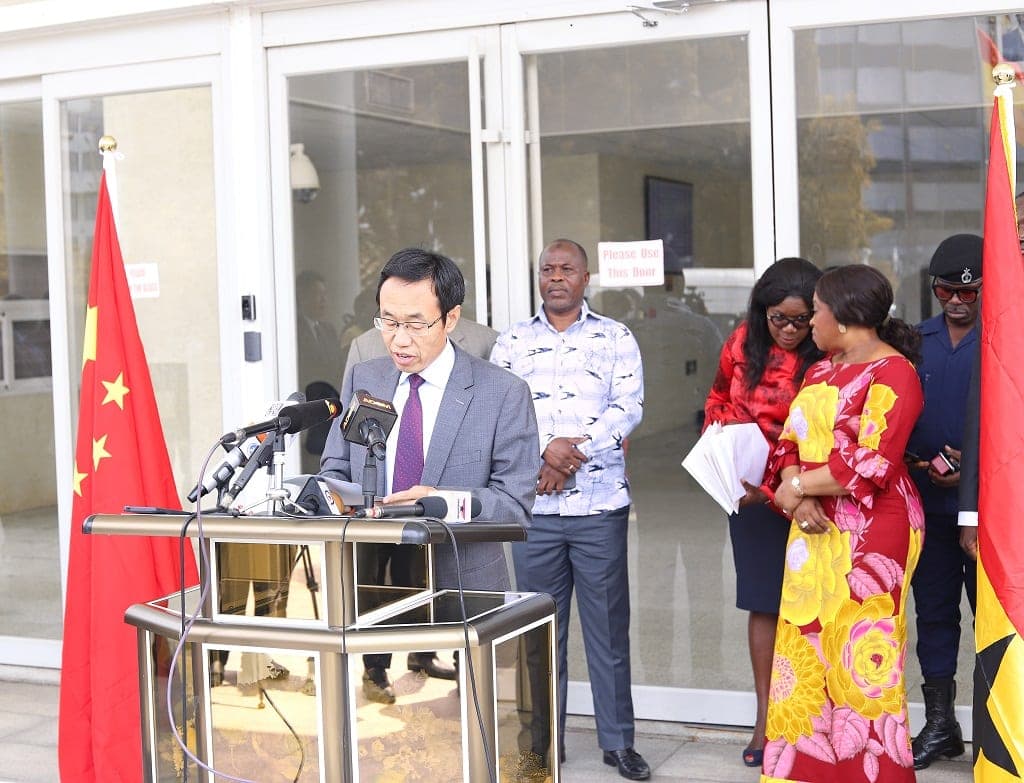YAOUNDÉ, Cameroon – A bishop in Ghana is claiming Chinese influence in the country is making the people face “captivity in our own land.”
In a video of a sermon that has gone viral across the country, Bishop Joseph Francis Kweku Essien of Wiawso said the growth of Chinese-owned businesses in the country is pushing Ghanaians out of work.
“We are in captivity in the sense that, a country like ours, a country which mines gold, diamond, manganese, bauxite, a country which has timber, which produces cocoa in abundance… And we have a country which is also now having oil in commercial quantity. But go to our hospitals, or many of our hospitals, if not all of them, and see what is happening there. Pregnant women lying down, lying down! Are we not in captivity, are we not in exile? We are!” Kweku Essien said.
Chinese immigration to Ghana began in the 1940s, when both Ghana and Hong Kong were part of the British Empire.
More recently, as China has begun significant investment in the country – especially in the mining industry – more Chinese traders have entered the country. Several Chinese nationals have also been arrested for acting as “galamseyers” – the local term for small-scale illegal gold miners.
Although an exact count has never been made, some experts estimate the Chinese population in the country to number nearly 700,000 people.
RELATED: Church in Ghana asks for action against “land grabbing”
Chinese traders are often short-term residents, and plan on returning to China after making their fortune. Tensions between the Chinese and Ghanaian community have often been tense, with the Ghanaians accusing the Chinese of often ignoring trading laws and labor rules, and the Chinese accusing the government of harassment and racism.
The bishop’s remarks will do little to ease tensions: He said the town of Wassa Akropong was “infested with Chinese.”
“Chinese are now roasting plantain and selling sugar cane. These Chinese are using our people,” he said.
Kweku Essien also accused government officials of refusing to enforce the law.
“There are assemblymen and MPs … there are chiefs and they see it. It is like nobody can talk about it. For what gain we are getting only God knows. So we are slaves in our own land,” the bishop said.
Last year, the Catholic bishops’ conference in Ghana issued a statement condemning illegal gold mining, which is estimated to cost the government over $2 billion a year.
Ghana also passed a law in 2013 banning foreigners from engaging in small-scale trading, which many say was targeting the Chinese community.
“They are collecting all retail businesses in Ghana. Some Chinese are roasting plantain, others are selling sachet water,” said Ali Mohammed Ahmed, a representative of the Ghana Union of Traders Association (GUTA).
Sachet water are bags of purified water stamped with a guarantee from the government, and selling it is one of the biggest businesses in Ghana, since water treatment is underdeveloped in the country.
“What of those our youth, brothers, children who leave school and there is no work? At the moment there is a freeze on employment, how do we survive? Crime is the only answer and we don’t want it to be so,” claimed Ahmed.
“If a foreigner wants to come and invest in Ghana, he has to do either wholesaling or manufacturing. And according to the law he or she should have between $200,000 to $1 million because he or she is coming to invest as an investor,” he added.
China is Ghana’s largest trading partner and main source of foreign investment, and bilateral trade between the countries is valued at over $6 billion.
Newly-appointed Ambassador Shi Ting Wang called on China and Ghana to “join hands and write a new chapter of the common development of the two countries.”
The Chinee government has been trying to counter anti-Chinese sentiment by increasing investment in the country.
In 2014, Chinese foreign ministry spokesman, Hong Lei, noted in The Guardian that the “unlawful behavior of a small number of Chinese people” in Africa had harmed the Asian giant’s image on the continent.
“We should point out, these problems are not mainstream in Sino-African cooperation, and also cannot eclipse the achievements of Sino-African cooperation,” he said.















